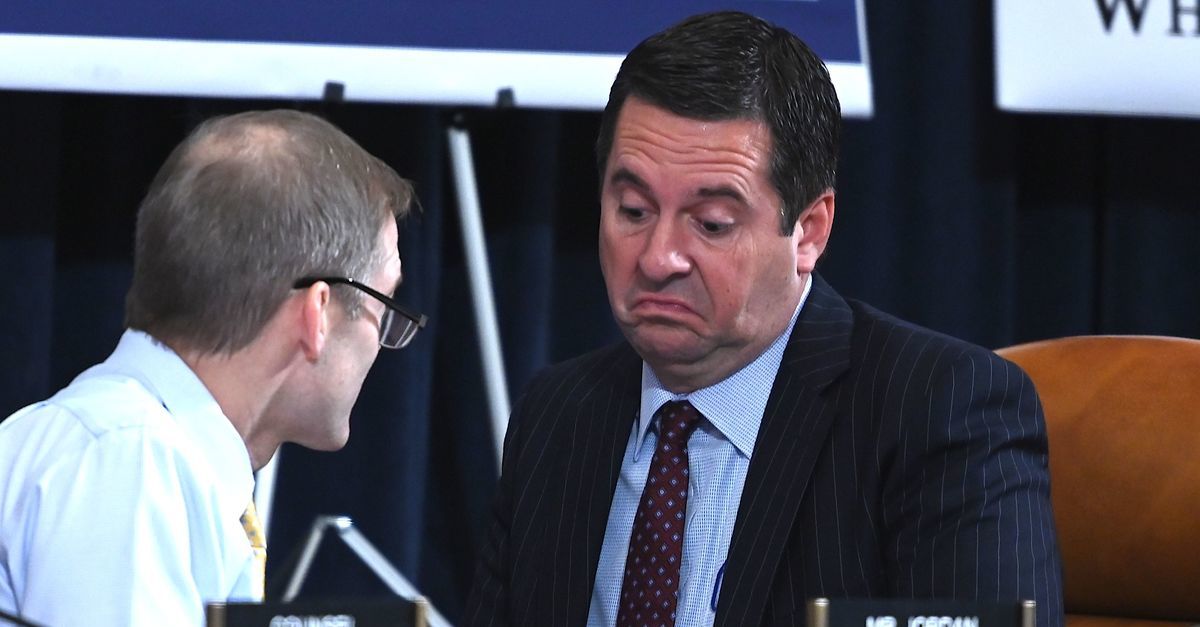
Steven Biss, a lawyer for Rep. Devin Nunes (R-Calif.), was recently warned by two judges–both of whom noted the possibility that Biss could face sanctions from the court if the practice of filing frivolous defamation cases persists.
According to the Fresno Bee on Monday, Fusion GPS, the research firm behind the “Steele dossier,” filed the most recent request for a court to sanction Biss late last month. It happened after Nunes filed a third $9.9 million lawsuit alleging the firm was engaging in “active, coordinated, and ongoing corruption, fraud, and obstruction of justice” over the information provided in the dossier. Nunes and Biss’s first two attempts to sue Fusion GPS were dismissed by a federal judge for failing to state a claim.
Biss has filed at least six lawsuits on Nunes’s behalf.
U.S. District Judge Liam O’Grady dismissed Nunes and Biss’s second attempt to file the Fusion GPS lawsuit in February, stating the complaint “includes rote statements of law and conclusory allegations which fall short of the pleading standard,” and was “insufficient to support a substantive ruling” on the issues. O’Grady also issued a warning saying that Biss could file another amended complaint in 30 days, “if he can do so pursuant to Rule 11.” The rule addresses, at length, sanctions:
(c) Sanctions.
(1) In General. If, after notice and a reasonable opportunity to respond, the court determines that Rule 11(b) has been violated, the court may impose an appropriate sanction on any attorney, law firm, or party that violated the rule or is responsible for the violation. Absent exceptional circumstances, a law firm must be held jointly responsible for a violation committed by its partner, associate, or employee.
(2) Motion for Sanctions. A motion for sanctions must be made separately from any other motion and must describe the specific conduct that allegedly violates Rule 11(b). The motion must be served under Rule 5, but it must not be filed or be presented to the court if the challenged paper, claim, defense, contention, or denial is withdrawn or appropriately corrected within 21 days after service or within another time the court sets. If warranted, the court may award to the prevailing party the reasonable expenses, including attorney’s fees, incurred for the motion.
(3) On the Court’s Initiative. On its own, the court may order an attorney, law firm, or party to show cause why conduct specifically described in the order has not violated Rule 11(b).
(4) Nature of a Sanction. A sanction imposed under this rule must be limited to what suffices to deter repetition of the conduct or comparable conduct by others similarly situated. The sanction may include nonmonetary directives; an order to pay a penalty into court; or, if imposed on motion and warranted for effective deterrence, an order directing payment to the movant of part or all of the reasonable attorney’s fees and other expenses directly resulting from the violation.
(5) Limitations on Monetary Sanctions. The court must not impose a monetary sanction:
(A) against a represented party for violating Rule 11(b)(2); or
(B) on its own, unless it issued the show-cause order under Rule 11(c)(3) before voluntary dismissal or settlement of the claims made by or against the party that is, or whose attorneys are, to be sanctioned.
(6) Requirements for an Order. An order imposing a sanction must describe the sanctioned conduct and explain the basis for the sanction.
In a filing opposing Nunes and Biss’s third attempt to file the lawsuit, Fusion GPS argued that Nunes and Biss was merely seeking to “harass” the firm with a complaint that “does not cure the pleading deficiencies identified in either the Court’s Order or the prior motions to dismiss, and is so packed with irrelevant, frivolous and malicious allegations that it is impossible to decipher what conduct Plaintiff alleges is unlawful.”
According to the Fresno Bee, a federal judge in February also warned Biss against filing “further inappropriate pleadings,” after he dismissed a defamation case Biss filed on behalf of a Russian graduate student who had been mentioned in several news stories about former National Security Advisor Michael Flynn.
Biss’s attempts to file defamation suits against National Public Radio (NPR), Twitter, and a government whistleblower advocacy group have also resulted in requests for sanctions from the court.
Kevin Martingayle, a former Virginia State Bar president who has worked on ethics or disciplinary committees for over a decade, told the Fresno Bee that both of rebukes against were “quite unusual.”
“If I got one warning like that from a judge, I would be extremely careful going forward,” Martingayle said, adding, “I can’t recall seeing it in an order after practicing law for 30 years, which has included some pretty contentious defamation cases.”
Biss was previously sanctioned by the Virginia State Bar and suspended from practicing law for one year in 2008 for “a deliberately wrongful act that reflects adversely on his fitness to practice law.”
[image via ANDREW CABALLERO-REYNOLDS/AFP via Getty Images]